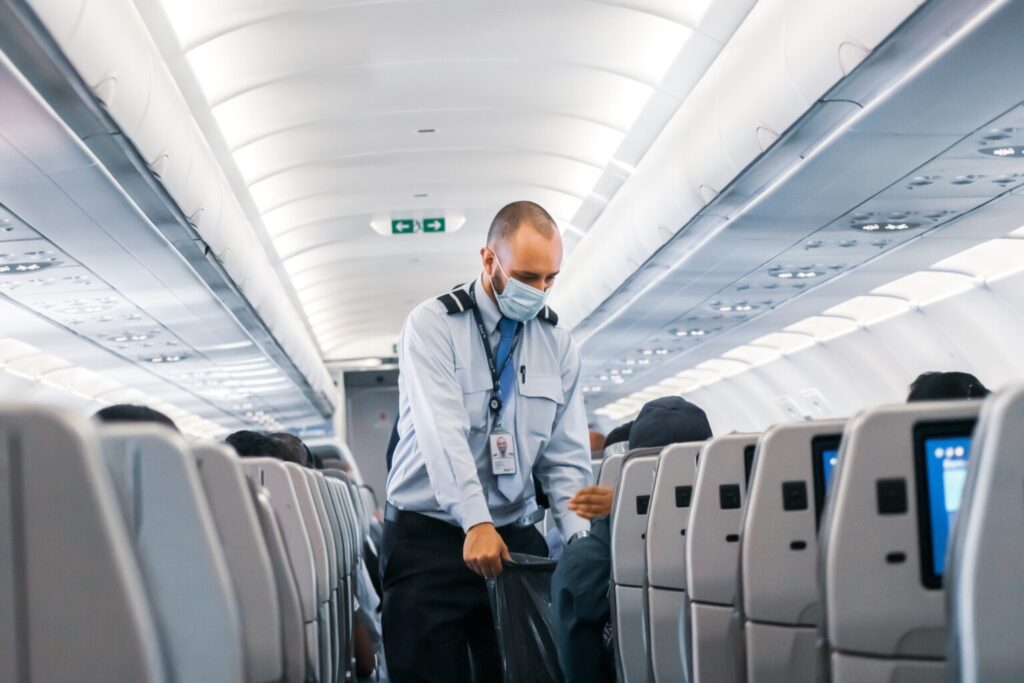- United Airlines flight attendants created their own version of NPS. Flight Attendant Promoter Score (FPS) shows their thoughts on management.
- Employee experience is the basis of customer experience and leads to strong revenue growth.
- Employees are valuable customers and are giving themselves a voice to show their frustrations.
For many companies, NPS is the Holy Grail of CX metrics: the ultimate number that determines whether or not they are succeeding. Now, employees are turning that metric back on the company as a way to give brutal real-time feedback and remind management that they are customers too.
Flight attendants have the opportunity to provide feedback on the following statements:
- I feel my contributions to our airline are valued
- I am able to trade my pairings/Reserve days with open time/pool
- I feel supported by management
- My contact with crew scheduling is timely and my issues are resolved
- Management is responsive to my needs during irregular operations
Flight Attendants Unveil NPS Scores
It’s tough to work in the airline industry these days. Between staffing shortages, disgruntled and rude passengers and trouble reaching the crew scheduling desk, many employees are at the end of their rope. United Airlines flight attendants are taking matters into their own hands with the new FPS: Flight Attendant Promoter Score.
Every week, the Association of Flight Attendants union will survey flight attendants with five questions about the work environment and management on a scale from 0 (strongly disappointed) to 10 (highly satisfied). Questions include if the flight attendants feel supported by management, if their scheduling is timely and if they feel their contributions to the airline are valued. They’ll then share that number with United Airlines management to reflect their real-time thoughts on the company. The goal is to hold United accountable for how it says it will treat employees.
Along with the announcement of the new metric came the results of the first week’s FPS survey. And it doesn’t look good for United Airlines management. Flight attendants gave the company a negative 95%, meaning that for every 2.5 flight attendants who scored the company a 9 or 10, 97.5 rated it a 0-6.
Employees Are Valuable Customers
The FPS score might not be indicative of every United Airlines flight attendant’s views, but the scores cast a negative light on the company and how it treats its employees.
The link between employee experience and customer experience is unignorable. Multiple studies have shown that companies with a strong employee experience have better customer experience scores, which leads to higher revenue. Engaged, empowered employees naturally provide better customer experiences.
Harvard Business Review researchers put it this way: “Any organization that has customer-facing employees should realize that they matter immensely to business success. They are not simply a cost to be minimized — as retail, call center and service employees are far too often thought of by executives — but potentially very high impact investments.”
The same researchers found that companies that move from the bottom quartile to the top quartile in employee experience can increase their revenue by more than 50%.
But it’s about more than just the bottom line. Employees are people and valuable customers of your business. Prioritizing their mental health, benefits and personal and professional development builds loyalty, creates strong bonds and is simply the most human thing to do.
As the push for transparency increases, employees are giving themselves a voice. United Airlines flight attendants show that they are willing to take matters into their own hands to make a change and improve their experience. And in doing so, they impact every customer on their planes.
_________________
Blake Morgan is a customer experience futurist and the bestselling author of The Customer of the Future. For regular updates on customer experience, sign up for her weekly newsletter here.

